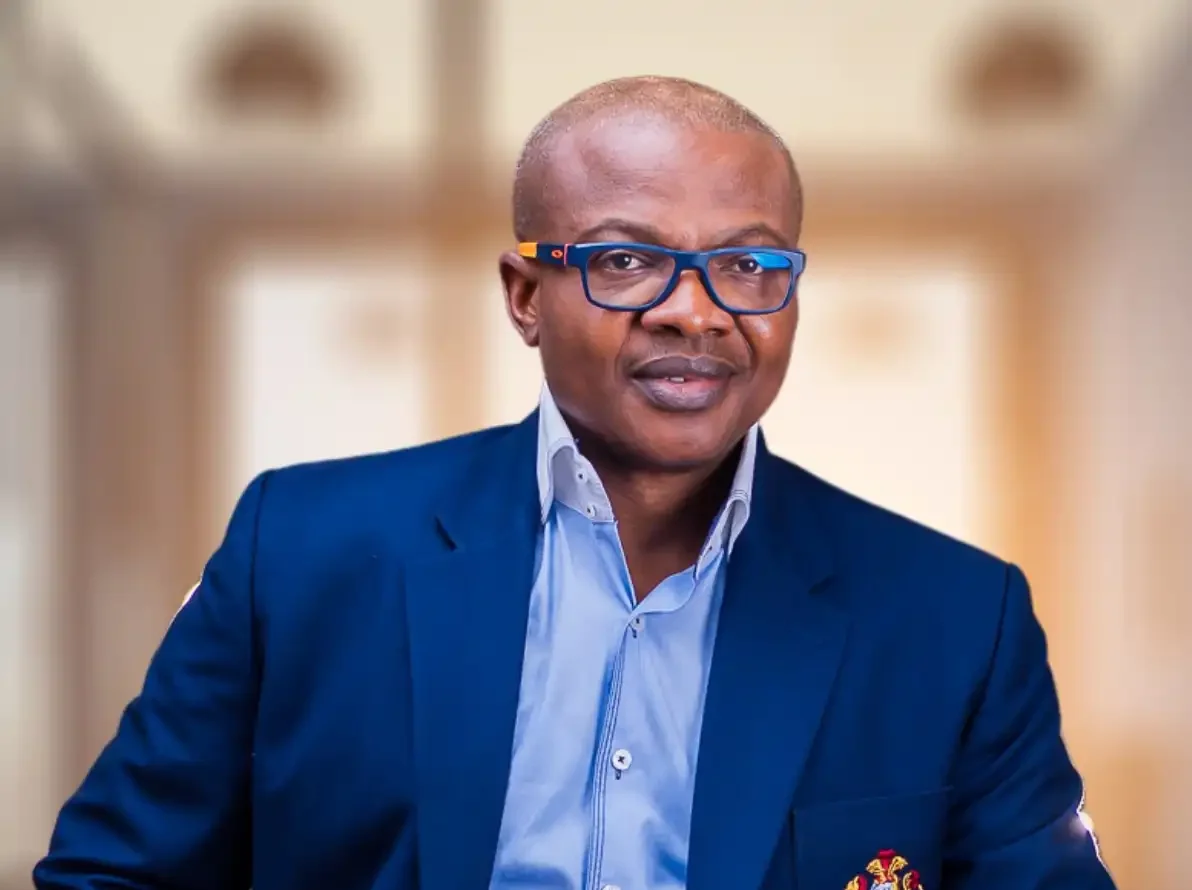As global technology distributors redefine their roles in the digital era, Westcon-Comstor is taking steps to make sure Africa isn’t left behind. I spoke with Vincent Entonu, Managing Director of Westcon-Comstor Sub-Saharan Africa, during the Westcon Microsoft Partner Summit 2025 in Nairobi.
At the centre of this transformation is Vincent Entonu, the Managing Director overseeing operations across 45 countries, what he calls “the rest of Africa,” outside South and North Africa. Under his leadership, Westcon-Comstor is helping partners and businesses across the continent transition from traditional hardware distribution to a cloud-first, subscription-driven future.
“We are witnessing a global transformation in technology,” Entonu explains. “It’s being led by how people want to consume, use and pay for technology. And this is driving digital adoption at every level.”
Redefining the Role of Distributors
Distributors have historically served as logistical intermediaries, warehousing, shipping and delivering products on behalf of technology vendors. But today’s technology ecosystem looks very different.
“Everything is digital,” says Entonu. “We’ve invested in cloud-based infrastructure, subscription billing, and customer enablement to make sure satisfaction is achieved. Beyond logistics, we now play a key role in training and empowering partners to position technology effectively.”
This shift has pushed Westcon-Comstor to build cloud platforms and enablement programs that support Microsoft and other leading vendors. The focus: ensuring partners can deliver modern, secure, and scalable cloud solutions across the continent.
Africa Is Not Late, It’s an “Early Adopter”
Entonu rejects the long-standing idea that Africa lags behind the rest of the world in adopting technology.
“I get frustrated when I hear that Africa adopts technology last,” he says. “In reality, we are early adapters. The first adopters test the technology; we come in the second phase, when the bugs are fixed and the value is clear. That makes us more influential in shaping how technology is used.”
He believes this pattern, seen in mobile money, cloud services, and now AI, positions Africa as a fast-learning and rapidly-scaling market, not a follower.
The real challenge is skills, not connectivity
While many point to infrastructure and internet access as Africa’s biggest hurdles, Entonu disagrees.
“Number one is skill,” he emphasizes. “The vendor can’t scale across Africa to deliver every skillset needed. But because we have offices and teams across the continent, we can help fill that gap.”
For him, skills development is the foundation of digital transformation. From training partners to educating government clients, Westcon-Comstor is focused on building the technical and commercial capabilities required to sell, deploy and support cloud solutions.
Subscription Models and the Rise of Customer Experience (CX)
Another major shift is how customers consume technology. The era of one-off purchases is ending.
“Nobody wants to own anything permanently,” Entonu notes. “The biggest challenge for us is ensuring customers renew their subscriptions annually, not because they have to, but because they’re having a great experience.”
That, he says, is what Customer Experience (CX) means in the cloud era: ensuring customers see continuous value, discover new features, and understand how updates and integrations improve their operations.
AI, Cloud and Security
As AI adoption accelerates, concerns about security and compliance are also growing. But for Entonu, that’s where Microsoft, one of Westcon-Comstor’s biggest partners, has a clear advantage.
“The beauty of Microsoft is that it gives you a complete solution,” he explains. “Modern Work increases productivity, but it also comes with security tools. With the right knowledge, our partners can show customers that they’re not just buying technology, they’re buying technology that’s secured.”
Connectivity and Affordability
Entonu believes Africa already has the connectivity infrastructure it needs. The challenge now is making internet access more affordable.
“Connectivity is everywhere, East and West Africa both have undersea cables. The only thing governments and service providers need to do is make it more affordable,” he says.
He also calls on governments to rethink digital taxes, which he argues increase costs and slow down technology adoption.
“If governments reduced or removed some digital taxes, service providers could offer their solutions at lower costs. It would help everyone, and the governments themselves are major consumers of technology today.”
Measuring Success Beyond Profit
For Entonu, success isn’t just about revenue growth. It’s also about impact.
“Yes, we want to sell technology and make money,” he says, “but we should also derive satisfaction from being part of Africa’s transformation. When I travel to a county and see Wi-Fi, or upload a photo to the cloud, I’m proud that we played a role in enabling that.”
He compares Africa’s current tech revolution to the M-Pesa story, an innovation that began with a social mission but became a global case study.
“Once you do something with the intention of helping people, the money comes later,” he says. “That’s what made M-Pesa successful, and that’s what should drive us in this digital journey.”
Westcon-Comstor’s Microsoft Cloud Expansion
Westcon-Comstor’s relationship with Microsoft in South Africa goes back more than 15 years. But its cloud distribution role for the rest of Africa began just two years ago, and the results are already impressive.
“We started small, but now we’re seeing 400% growth year over year,” says Entonu. “We’ve built a unified Sub-Saharan Africa team, leveraging the experience of our South African colleagues to accelerate growth across the region.”
With this regional integration, Westcon-Comstor is positioning itself as the distributor of choice for Microsoft and other cloud vendors in Africa, combining local reach with global expertise.
The Future
As Africa’s digital transformation accelerates, Entonu sees partnerships, skills, and purpose as the key drivers for long-term impact.
“The pace of change is fast,” he concludes. “You can’t stop it. The best thing we can do is ensure Africa is part of that change and not watching from the sidelines.”
For these and more stories, follow us on X (Formerly Twitter), Facebook, LinkedIn and Telegram. You can also send us tips or reach out at [email protected].


